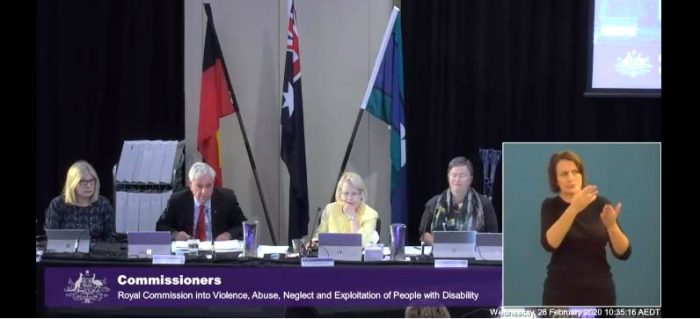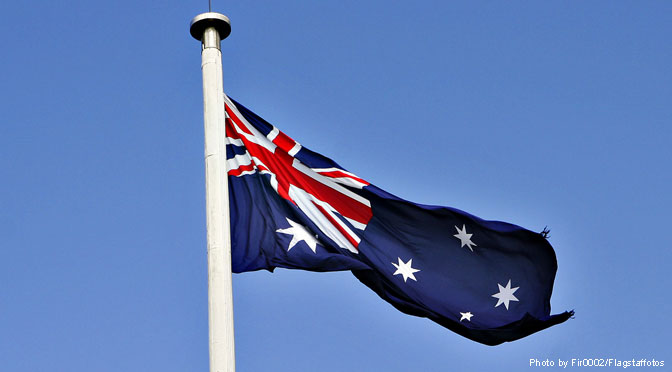Concerns about the treatment of people with disabilities in Australia has led to horrifying revelations from people testifying before the Disability Royal Commission. Established in April 2019, the commission aims to investigate, independently from the government, claims of violence, neglect, abuse, and exploitation — and so far, the findings have been shocking.
One of the biggest problems is poor health care for people with disabilities, which, the Newcastle Herald reported, has been called a “national disgrace.” And, as people testified, inadequate care is able to happen specifically because ableism is so widespread.
“There most certainly has been a perception that these are other people, out of sight, out of mind, segregated away from society, a view that people with intellectual disability are lesser people with lesser rights,” NSW Council for Intellectual Disability senior advocate Jim Simpson said. “I think there would still be many medical practitioners who would think that for a lot of people with intellectual disability it would be a blessed release for the person and for their family for them to die.”

Commissioners, including Ronald Sackville, listen to testimony during the inquiry. Live feed of the inquiry is available here.
Jaqueline Mills is a mother of a son with Angelman syndrome and said he almost died several times, simply because he wasn’t given the proper care he needed because of his disabilities. Doctors delayed treatment for his appendicitis, and again for wisdom tooth removal, and when he ended up in the ICU, a doctor told her “maybe it would be for the best that he didn’t survive.” An expert likewise testified that as many as 400 people with disabilities die each year in Australia from “potentially avoidable” causes.
Ronald Sackville, the commission chair, said, “I think you will find over the next two weeks that there is evidence that should disturb all Australians and should make all Australians aware that there are very, very serious problems that need to be addressed.” Witnesses said they had no control over their own treatment, and were subjected to things like electro-shock therapy. Others were restrained, put into seclusion rooms, or given unnecessary medical treatments against their will.
Another mother, Rachel Browne, watched her 16-year-old son Finlay die after months in the hospital. Finlay, who had Down syndrome, was brought to the hospital, where he collapsed onto the floor in pain. But the medical staff was not eager to give him the help he needed.
READ: Boy with Down syndrome steals royal hearts in Australia
“The triage nurse, when I looked up rolled her eyes, and I thought that’s it, we’re not going to get the help we need,” Browne recalled. She later had to specifically tell the doctor to speak directly to her son. He spent 61 days in the ICU, but Browne said it was as if no one cared. “There was a distinct lack of urgency,” she explained. “Given the serious nature of what they had discovered [they] would be actioning better monitoring of Finlay.” In a previous case, when she had to take Finlay to the emergency room, doctors outright insulted him in the discharge letter.
“He felt that Finlay… was just a whingy child and suggested I go home and give him more Panadol and let the antibiotics take effect and in essence just let him get over it,” she said, and then described the discharge note. “It referred to Finlay as a grizzly child with Down syndrome who had poor dental hygiene and I felt that comment was completely irrelevant as to why we were there.”
Another mother spoke about her experience with being pressured to have an abortion. When Toni Mitchell was told that her son would likely have Down syndrome, the medical staff made an appointment for an abortion without even bothering to ask her first.
“In that moment they completely disallowed his life. They said he wasn’t worth living,” she told the commission. “[T]hat was the moment I had to start justifying my son’s right to live and to be treated and I had to start justifying his value to be alive… They kept just judging us based on my decision to give him a chance at life.”
Rebecca Kelly, another Down syndrome mom, had similar experiences to Mitchell. Kelly described the Australian health care system as “if you can’t cure it … then you eradicate it.” And while Kelly said that the pressure to have an abortion is real, it’s only the beginning. “If you think that person’s life is a tragedy and that they suffer from this condition then you start to believe that it’s an act of kindness or that it’s a responsible act to do all you can to prevent that birth, and that becomes quite coercive,” Kelly said in her testimony. “If you have a doctor (who) thinks that possibly your life’s going to be a little bit better if your child doesn’t make it because they’re taking that burden away from you, that has horrible implications for the level of care that you don’t get.”
The Disability Royal Commission is continuing to investigate, with an interim report due in October. The final report is scheduled to be released in April 2022 — but as it is, it seems beyond clear that there is a serious problem with the care and treatment of people with disabilities in Australia, as has been the case in the United States as well.
“Like” Live Action News on Facebook for more pro-life news and commentary!







